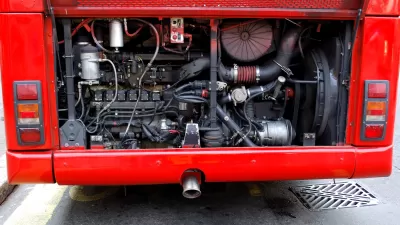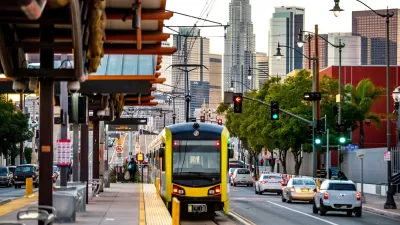The first public hearing on how to shore up the MTA's finances was held on Monday. Congestion pricing was widely mentioned as part of the solution, but more will be necessary to maintain and expand the nation's largest transit system.
The panel headed by former MTA chief Richard Ravitch held its first public hearing Monday at NYU's Kimmel Center. A variety of proposals surfaced, including congestion pricing, to help the MTA navigate its current funding crisis.
Streetsblog was there to observe the afternoon session and give a brief rundown of the themes that surfaced repeatedly:
"Responsibility for adequately funding the MTA should fall on those who benefit from its services. This encompasses a fairly broad swath of people, including straphangers, the real estate industry, and car commuters (who get less traffic on the street when more people use transit). Many of these 'stakeholders' already contribute something to the MTA in the form of fares or dedicated taxes, and could be asked to pay higher rates going forward. Several people testified that some form of road pricing or bridge tolling would be an additional stream of revenue consistent with this philosophy."
"The MTA needs more consistent and reliable revenue streams. Congestion pricing fits the bill in this regard, too. The need for predictable revenue also led speakers to suggest more broad-based taxes, unlike the targeted taxes mentioned above. (Taxes collected from the real estate industry have proven especially fickle recently.) Kevin Corbett of the Empire State Transportation Alliance recommended both road pricing and a payroll tax, saying that 'if you have multiple parties sharing in the pain, it's easier to do a deal.' He added, 'Looking at the enormity of the task, we suspect it will be a combination of the various taxes [and] fees.'"
FULL STORY: Ravitch Commission Faces Difficult Task of Shoring Up MTA’s Future

Planetizen Federal Action Tracker
A weekly monitor of how Trump’s orders and actions are impacting planners and planning in America.

Restaurant Patios Were a Pandemic Win — Why Were They so Hard to Keep?
Social distancing requirements and changes in travel patterns prompted cities to pilot new uses for street and sidewalk space. Then it got complicated.

Map: Where Senate Republicans Want to Sell Your Public Lands
For public land advocates, the Senate Republicans’ proposal to sell millions of acres of public land in the West is “the biggest fight of their careers.”

Orange County, Florida Adopts Largest US “Sprawl Repair” Code
The ‘Orange Code’ seeks to rectify decades of sprawl-inducing, car-oriented development.

Maui's Vacation Rental Debate Turns Ugly
Verbal attacks, misinformation campaigns and fistfights plague a high-stakes debate to convert thousands of vacation rentals into long-term housing.

San Francisco Suspends Traffic Calming Amidst Record Deaths
Citing “a challenging fiscal landscape,” the city will cease the program on the heels of 42 traffic deaths, including 24 pedestrians.
Urban Design for Planners 1: Software Tools
This six-course series explores essential urban design concepts using open source software and equips planners with the tools they need to participate fully in the urban design process.
Planning for Universal Design
Learn the tools for implementing Universal Design in planning regulations.
Heyer Gruel & Associates PA
JM Goldson LLC
Custer County Colorado
City of Camden Redevelopment Agency
City of Astoria
Transportation Research & Education Center (TREC) at Portland State University
Camden Redevelopment Agency
City of Claremont
Municipality of Princeton (NJ)





























